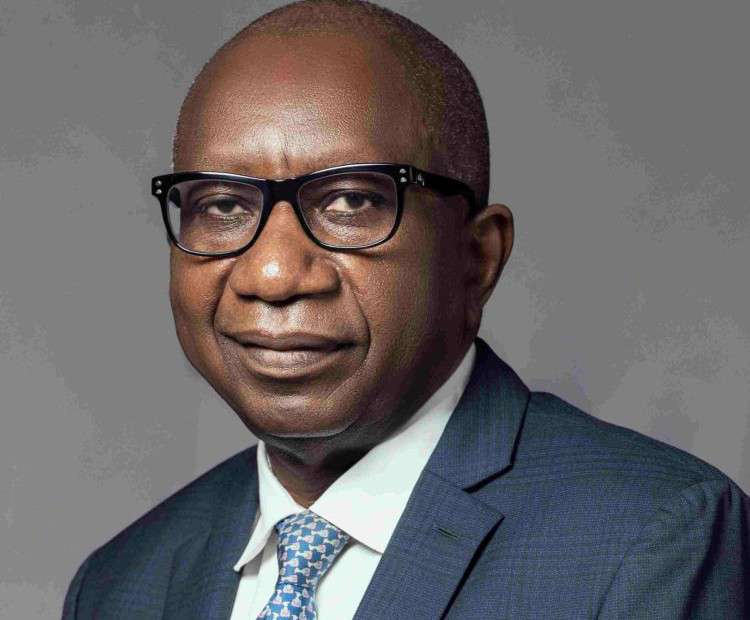Business
Insurers evade Local Content policy in big risk business

By AYOOLA OLAOLUWA
Foreign insurance companies and underwriters have virtually taken over Nigeria’s lucrative risk management market, Business Hallmark findings have revealed.
According to findings, lucrative sectors such as aviation, maritime and oil and gas sectors have largely been taken over by foreign insurance firms, while their Nigerian counterparts continue to play catc-hup and losing billions of dollars that would have come in as income.
The National Insurance Commission (NAICOM), it would be recalled, had given local insurance firms September 30, 2021 deadline to recapitalize to a new threshold in its bid to boost their capacity and retain more risks in the Nigerian market.
While operators with composite licence were made to upgrade their capital base from N5 billion to N18 billion; life insurance were forced to increase their minimum capital requirement from N2 billion to N8 billion.
In the same vein, general insurance companies raised their capital base to N10 billion from N3 billion while reinsurance firms raised their minimum capital to N20 billion for them to be able to continue to operate in Nigeria.
However, industry players’ hope that the recapitalization exercise would lift the sector from its slumber seemed to have been dashed, as local insurers, eighteen months after the recapitalization exercise, have continued to play second fiddle to their foreign peers.
According to some industry players, who spoke to our correspondent on the development, several factors, such as lack of capacity to retain more risks in the local market, low capitalisation, naira depreciation, forex unavailability, and the failure to fully implement the Local Content Act, among other factors, are to be blamed for the wide gulf between local and international underwriters.
BH checks revealed that while the local insurance sector contributes a meagre 0.6 per cent to the nation’s Gross Domestic Product (GDP), its South African counterpart contributes 15.4 per cent to the country’s GDP.
One of the factors militating against the growth of the local insurance industry, some stakeholders lament, is the vexed issues of forex scarcity and the continued naira depreciation.
According to the stakeholders, the massive depreciation of the naira to N496 from N361.3 (official) and N750 from N365 (parallel market) between 2018 and 2022 has really hurt the insurance industry.
“The maritime, aviation and oil and gas businesses are transacted in dollars and once the naira depreciates, retention comes down while the value of the risk goes up.
“The matter is made worse by the unavailability of forex. You can only source it in the black market. The problem is not peculiar to the insurance sector. We all know that foreign airlines’ funds of over $800million are currently trapped in Nigeria.
“As things stand, local insurers are like sitting ducks waiting to be plucked. Frankly speaking, the situation is beyond them. For instance, if the Local Content Act had been fully implemented, it would have helped the sector to contribute more to the Gross Domestic Product (GDP) instead of the meagre 0.6 per cent contribution”, an industry expert lamented while speaking to our correspondent.
Meanwhile, local insurance firms and their collaborators in the maritime, oil and gas and aviation sectors have found ingenious ways of beating the law in their favour by first awarding the contracts to local firms, who in turn pass them over to their reinsurance partners abroad.
“Unable to compete favourably with their foreign peers, as well as not wanting to totally lose out in the sharing of the huge premiums, local insurance firms have resorted to transferring their oil and gas, maritime and aviation businesses to their foreign partners in the hope of getting commission from the referred contracts”, a source confided in BH.
According to the source, the practice of ceding risk businesses to foreign partners instead of losing it outrightly to competitors actually started about seven years ago.
“This unfortunate development has led to the ceding of about 70 percent of risk businesses to foreign reinsurance firms by Nigerian insurers.
“Industry regulators are incapable of dishing out sanctions as the contracts are craftily worded to protect the players involved.
“For instance, a local insurer without the capacity to handle a huge risk business, goes abroad to look for a partner, who will buy off the contract for a fee.
“Before that, the two would have signed a partnership contract making them a single entity. By going this route, they are immune from regulators sanctions”, the source claimed.
Based on data mined from NAICOM’s website, local insurers attracted N501.3 billion oil and gas business between 2018 and 2022, but sold N307.5 billion or 61 per cent of the contracts to their foreign partners.
NAICOM’s official figures seen by BH confirmed that foreign underwriters actual share of local risk businesses exceeded the 30 percent limit stipulated by law.
For instance, 64 percent worth of risks in the oil and gas sector, which include prospecting, exploration, drilling, constructions, shipping, distribution, marketing, and transportation were transferred to foreign partners in 2022.
Further breakdown of the report showed that the percentage of oil and gas business exported by local insurers in 2018 jumped from 50.9 per cent to 64 per cent in 2022.
Also, local insurance firms attracted N82.2 billion oil and gas premium income in 2018, but ceded N41.9 billion or 50.9 per cent to the foreign counterparts in the same year.
The trend continued in 2019 with Nigerian insurers ceding N37.9 billion or 60 per cent of N94.7 billion oil and gas premium to foreign partners.
The plight of the local insurance industry further worsened in 2020 when insurers attracted N91.9 billion oil and gas premium but transferred N56.8 billion (64 per cent) to their foreign counterparts.
Oil and gas premium income also grew in 2021 to N106.8 billion. However, local insurers were only able to hold on to N37.9 billion. The rest was repatriated abroad.
Likewise, premium income for oil and gas business stood at N125.7 billion in 2022. Unfortunately, the local market retained N45.1 billion while N80.6 billion or 64 per cent was mopped up by foreign firms.
In their reactions, concerned stakeholders blamed the development on the several factors, especially the dollarisation of the oil and gas, maritime and aviation sectors.
Speaking on the development, the Deputy Managing Director, Technical, Anchor Insurance, Mr. Adebisi Ikuomola, said that participation in dollar denominated businesses, especially oil and gas, has crashed.
“In response to the high level of premium export emanating largely from oil and gas related risks, Nigeria use laws and regulations to drive local participation through graduated domestication of these insurances. However, there is still a long way to go.
“Despite the local content laws and regulations established in Nigeria, insurance companies are yet to fully take advantage of the opportunity to effectively position themselves as major players capable of leading foreign firms in the underwriting of oil and gas business.
“The mandates to companies in the upstream petroleum sector to cede their insurance business to local insurers, is in line with efforts to maximise the participation of local insurance companies in the oil and gas sector”, the Anchor Insurance boss stated.
In his own submission, Mr. Olasupo Sogelola, MD/CEO of International Energy Insurance, largely blamed the continued ceding of insurance businesses to foreign entities.
“I will speak only on the area I have knowledge and competence, which is the oil and gas sector. Oil and gas business is a dollarised account; our retention is in naira. Once the exchange rate goes up, your retention comes down. You cannot retain the same business when Dollar was N300 and when it has almost become 800.
“If your shareholders funds’ is in dollars, then you will not bother because you will still be retaining the same amount of oil and gas business that you are retaining because it is a dollarised account.
“For example, if my capacity is 10 million dollars and I am supposed to take a two million dollar premium business, I would have measured it against my dollar capital base. But if I am to measure 10 million dollars against a N10 billion business, first I have to convert N10 billion to dollars to get the actual dollar I have. In that regard, can I take two billion dollars business? No, because all my N10 billion is not more than 12.5 million dollars.
“So, that is why our local retention is dropping. That is why the market is losing business to the international world because once dollar price goes up, it affects that.
“Claims are also affected because the claims that you have incurred that you have not paid, by the time it crystallizes, you will pay at a higher rate.
“For example, my company has a lot of claims in dollars. We have paid everybody in naira but we are just paying the dollar claims little by little.
“Due to the rate of exchange, I cannot just dip my hands into my pocket and bring out all the dollars and pay off one day. So I schedule it to make money for my shareholders and the company. That is the situation”, said Sogelola.
However, the Managing Director of Continental Reinsurance Plc, Dr. Femi Oyetunji, in his own submission, revealed that local insurers cover only about 10 per cent of big risks while the remaining are insured abroad.
According to Oyetunji, the Local Content Act will have little or no effect owing to local insurers modest size and low capitalisation, compared with acceptable international standards for insurance companies.
“The big risks in the sector are all owned by multinationals with head offices in the U.S., China, and Europe. So they will be more comfortable dealing with companies from their own base.
“If the local content policy were not in place, I can assure you most of us would not be in business now because the size of the balance sheet of some of the big global insurers would have placed them in vantage position to write everything that is there”, Oyetunji explained.





